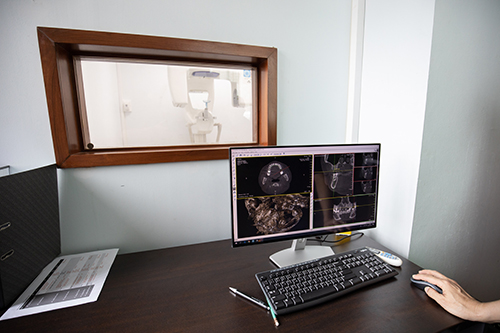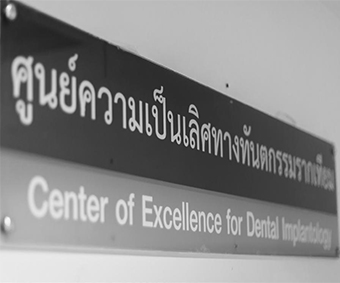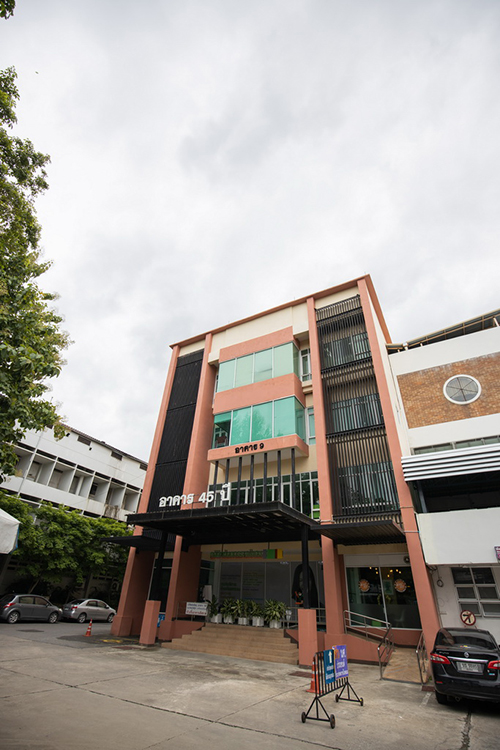An evening towards the end of 1973
As students of the Faculty of Agriculture were practicing rugby at the rugby field of their faculty a car featuring the royal sign drove up and parked. As the door opened, the students all ran up for a look and were shocked when His Majesty King Bhumibol Adulyadej stepped out onto the pavement.
“…I nearly went into shock. It really was him. By sheer instinct, I stood tall and said ‘Sawasdee krup’ and then told my friends to bow,” reminisced Vijarn Yodjiw, a student and rugby player at the time.
“After that I remembered he asked if we were playing sports and I told him yes, rugby practice. He said, ‘Good…good I want to visit your food factory which I donated to see whether it is working’ (HM had recently donated a small food processing factory). I informed His Majesty that it was being used to process pineapples, but also informed him that most of the lecturers had gone home for the day and that the factory was closed. He asked me to go look for someone so I ran into the office and called the dean and head of departments, who all came rushing back about ten minutes later. My friends and I returned to our practice, looking down at ourselves to see we were covered in mud to greet the king.”
This incident happened during a time when many lecturers from the university were invited by His Majesty the king to work on various projects, especially the then-new Royal Projects which was designed to help elevate the living standards of hill people by encouraging them to grow winter produce rather than opium.
The factory in question was donated in 1972 to the university, with the Faculty of Agriculture overseeing it. The factory was built to process excess Royal Project products so that nothing goes to waste, including canned fruits, fruit compotes, fruit juices, etc.
It was His Majesty’s vision that Thailand’s future depended on a sustainable and efficient farming model, which led to what was then called ‘Doi Kham’ and now known all over Thailand as the Royal Project’s Doi Kham Shop, selling goods and products developed and produced by the Royal Projects, as explained by Associate Professor Dr. Narin Thongsiri.
“In 1976 His Majesty said that processed food is the future of Thailand when he said to me, ‘You must help the farmers to live well, if not our country won’t have peace. We need to make sure they have enough to eat, it is not enough that we have enough to eat, we need to help one another. You need to keep talking, keep lecturing and don’t stop until Thai people understand this.’ I bowed my head and have been following his words ever since, trying to help Thai people understand the role of industrial agriculture in helping farmers.”
His Majesty King Bhumibol Adulyadej visiting Chiang Mai University’s food processing factory
His Majesty King Bhumibol Adulyadej visiting the Faculty of Agriculture in 1974
This was just one of countless exchanges between His Majesty the king and lecturers of Chiang Mai University in those early years. His Majesty would relocate to Bhubhing Palace on top of Doi Suthep-Pui Mountain each winter, and because he had to drive past Chiang Mai University on his way back to the palace, there were many such conversations. Many lecturers were also invited up to the palace to work on a variety of projects, each raised by His Majesty following a conversation with a citizen in need. It was he who helped forge a path for Chiang Mai University’s lecturers to work effectively with the general public, using their skills and expertise to solve society’s many ills.
One of the longest-standing success stories is that of the Siamese tulip, Thailand’s second largest floral export after orchids. It is not widely known, but it was the Chiang Mai University’s team which developed the Siam tulip under H.M. The King’s Initiative Centre for Flower and Fruit Propagation, set on a 32 rai piece of land in Hang Dong District of Chiang Mai. H.M. donated the land for the project as well as funds to set it up, tasking the university’s Faculty of Agriculture team to experiment on finding a good export product, at a time when Thai farmers were not known for producing high quality produce.
Siam tulip
In 1980, His Majesty donated 80,000 baht of his own money to Assistant Professor Dr. Pisit Woraurai, previous Dean of the Faculty of Agriculture, Chiang Mai University, to develop flowers in a demonstration plot, starting with gladiolas. Farmers from Chom Thong District were the first to experiment with this flower, eventually finding a market in Bangkok’s Plak Klong Market. When he heard of this His Majesty told Assistant Professor Dr. Pisit, “This work is truly of value to the people. Do not stop, continue your work. Invite other lecturers to help out more and help the people.”
His Majesty King Bhumibol Adulyadej in conversation with Assistant Professor Dr. Pisit Woraurai
Since that day, farmers across Thailand have worked with gladiolas and Siam tulips, including other tropical plants, creating strong economies for many areas of Chiang Mai, Phayao, Nakorn Nayok, Chachoengsao, Yale and Narathiwat provinces, totalling 18 million baht in exports per year. Today, farmers no longer have to rely on outside help to survive and strive, and continued research and development will add value for many years to come to the farming sector.
In 1992, His Majesty underwent a dental procedure at the Faculty of Dentistry, Chiang Mai University. He kindly bestowed the first Anandamahidol scholarship fund to the Faculty of Dentistry, which acted as a catalyst and jumpstart for a number of innovations and inspirations which led to the invention of Novem. Novem, a dental implant technology, was founded by Associate Professor Dr. Pathawee Khongkhunthian, Director of the Centre of Excellence for Dental Implantology, Faculty of Dentistry of Chiang Mai. Until His Majesty underwent his own dental surgery, Thailand did not have its own dental implant technology. As Associate Professor Dr. Pathawee explained,
A visit by Associate Professor Dr. Pathawee Khongkhunthian and team in a meeting with His Majesty King Bhumibol Adulyadej
“His Majesty had been suffering from some dental issues and our team initially made him false teeth which were removable. He didn’t say anything, but returned it the next day. The team then explained to him about dental implant technology, which he appreciated greatly asking, ‘Can’t we do this ourselves? If we can, then it will be great to develop this technology for the continued sustainability and prosperity of the country.’”

In following His Majesty’s sage words, ‘Research, Practice, Develop’, Associate Professor Dr. Pathawee spent years working on developing Thailand’s first dental implant technology, eventually opening the Centre of Excellence for Dental Implantology in 2012. Apart from providing the public with this service, the technology is also helping to add value to the medical industry with the creation of Novem Dental Implants under Novem Innovation (Novem in Latin means 9, honouring the reign of His Majesty the King).


It is these, and so many other similar stories, projects and initiatives, all inspired by the wisdom and vision of His Majesty King Bhumibol Adulyadej, which has led to such success for Chiang Mai University’s efforts in working with and serving the community and environment in a sustainable fashion. Today, Chiang Mai University has been honoured to be ranked by THE Impact Rankings 2022 as the 70th, amongst world universities, and second in Thailand, for its social impacts based on the UN Sustainable Development Goals.’
Days of Royal visits on rugby field, pineapple factories on campus and Siam tulip developments may all be stories of the past, but they have all paved the way to where Chiang Mai University stands today…and all of its possibilities for tomorrow.